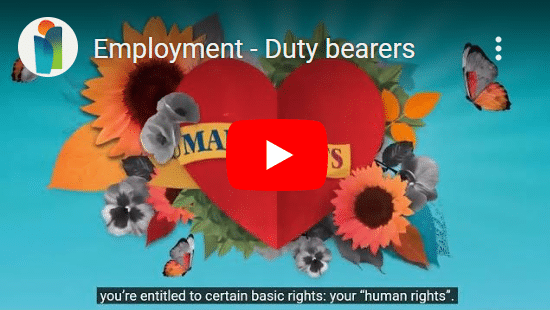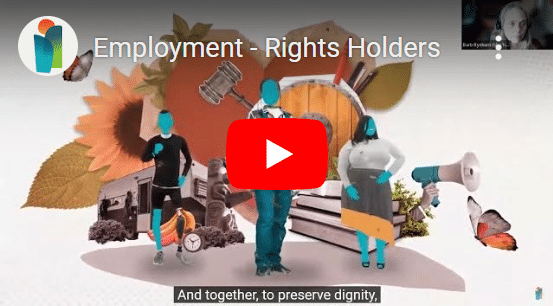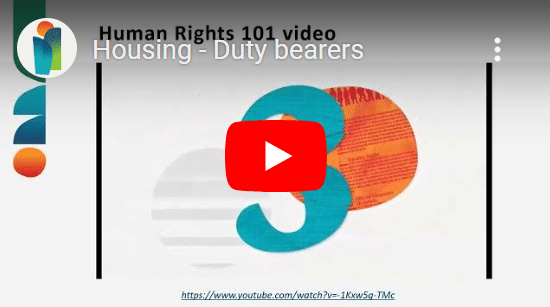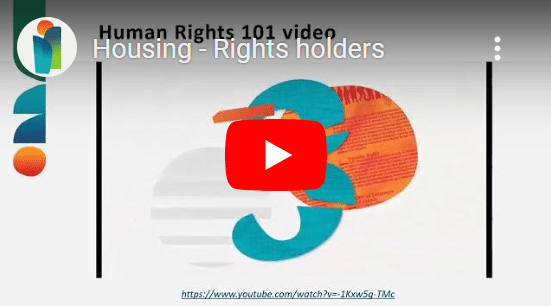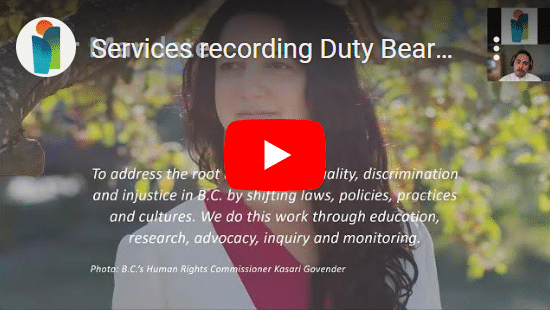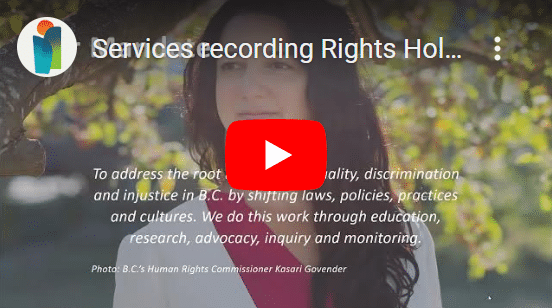Chinese (traditional) resources
繁體中文資源
Where possible, BC’s Office of the Human Rights Commissioner translates its materials into chinese (traditional). Here is a list of materials that are currently available.
在可能的情況下,卑詩省的人權專員辦公室(Office of the Human Rights Commissioner)會將材料翻譯成繁體中文。以下是現時可用的材料的名單。
Publications
刊物
- No wrong door rack card
- 卑詩省人權體系 (PDF, 715KB)
- Accessibility 2023 report summary
- 卑詩省的人權專員辦公室的無障礙性 — 摘要 (PDF, 302KB)
- Inquiry into hate in the COVID-19 pandemic: Executive summary
- 從仇恨到希望:COVID-19疫情中的仇恨調查報告——摘要 (PDF, 526KB)
- Inquiry into hate in the COVID-19 pandemic: Commissioner’s presentation
- 由仇恨到希望:新冠疫情仇恨事件調查報告 (PDF, 1.71MB)
- (Annual report 2021/22 exec summary)
- 飲水思源:深耕社區BCOHRC 2021/22 年度報告和 2022/23–2024/25 服務計劃執行摘要 (PDF, 197KB)
- (SCORPA exec summary)
- 平等讓我們更加安全:卑詩省政策改革的人權考量 —— 行政摘要 (PDF, 345KB)
- (Annual report 2020/21 exec summary)
- 構建人權文化:2020/21 年度報告和2021/22-2023/24 服務計畫 —— 執行摘要 (PDF, 262KB)
- The Commissioner’s full policy statement on human rights during the COVID-19 pandemic
- 卑詩省的人權專員辦公室(Office of the Human Rights Commissioner): 有關 COVID-19 大流行的政策聲明 (PDF, 343KB)
Video and audio
視頻和音頻
Voiceover
旁白 – put this in admin-mode only because I think “video and audio” is enough (otherwise too many heading levels)
Learning about B.C.’s Human Rights Code
卑詩《人權法》
Introducing human rights
人權簡介
B.C.’s human rights system
卑詩省的人權體系
closed-captioned
隱藏式字幕 – put this in admin-mode only because I think “video and audio” is enough (otherwise too many heading levels)
Other resources
其他資源
Let’s #rewrite the rules campaign // Awareness campaign about ableism
關於體能歧視的覺醒運動
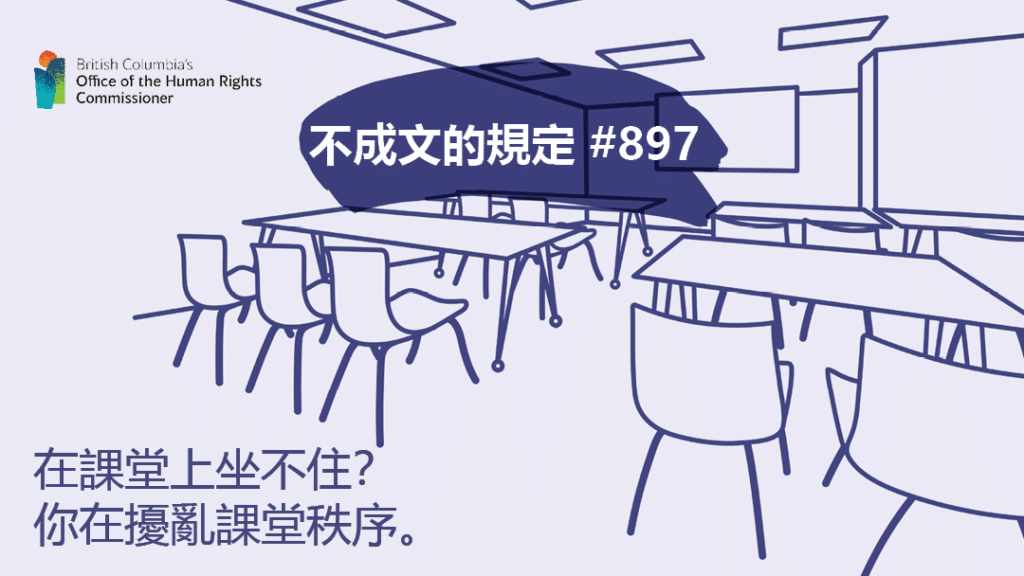
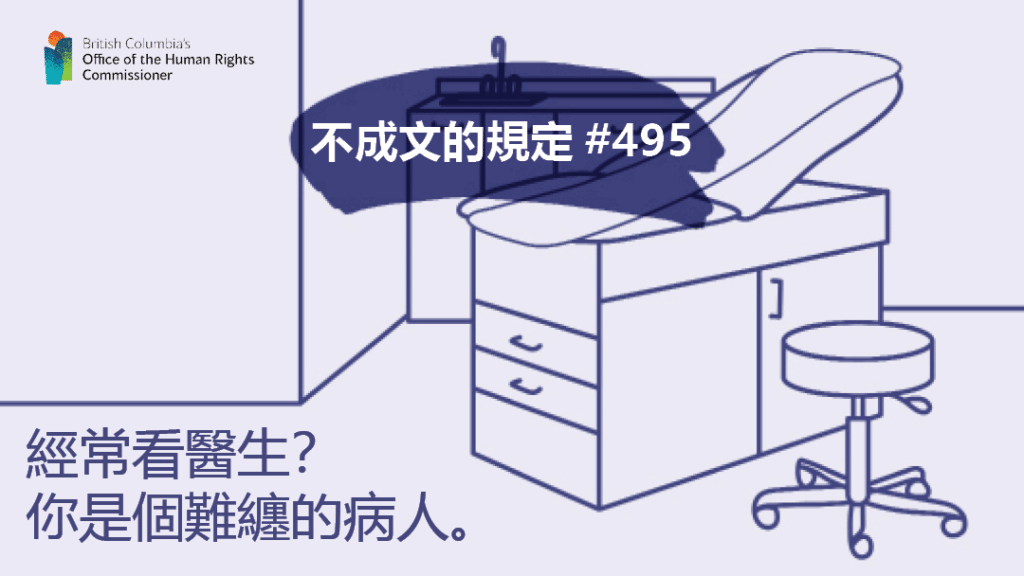
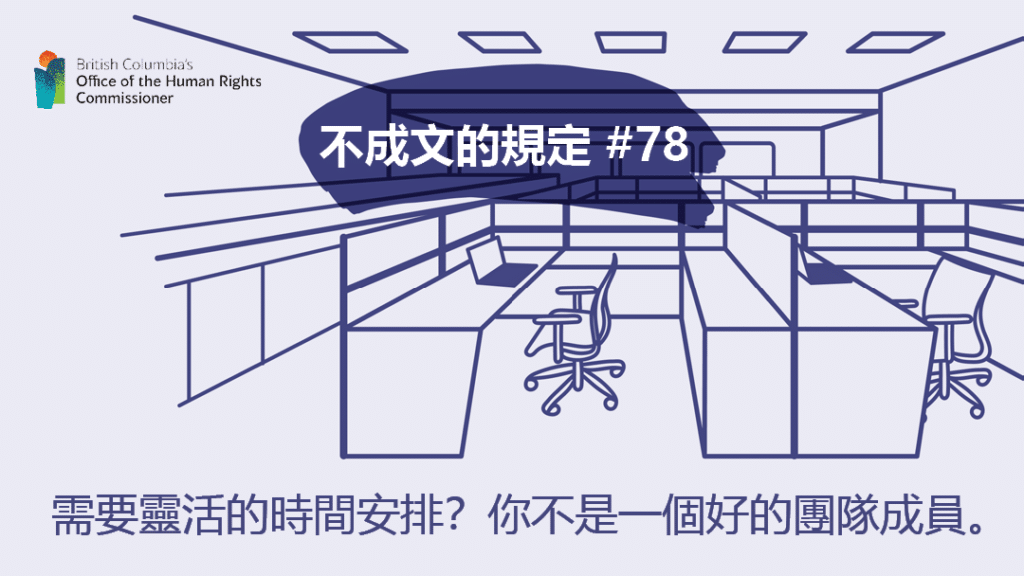
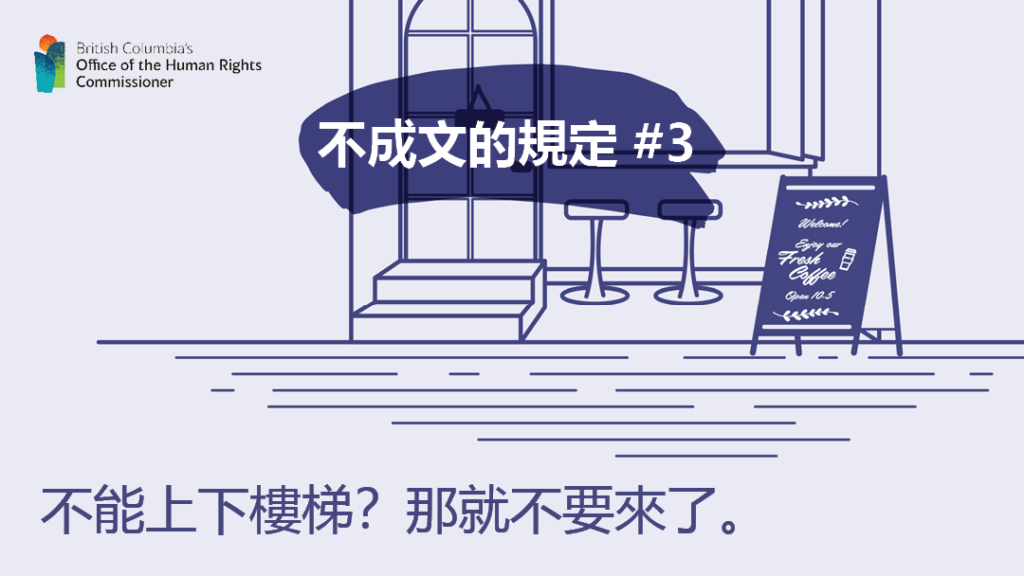
Contact us
聯絡我們
If you would like to access a resource from our Office that is not currently available in LANGUAGE, please feel welcome to request a translation by emailing [email protected].
您如想使用現時未有繁體中文版本的本辦公室的資源,請隨時發電郵至[email protected],索取翻譯本。
You can also contact us with feedback. We welcome any comments and questions you may have, including those about:
您也可聯絡我們,提出反饋意見。我們歡迎您提出您可能會有的意見和問題,包括有關以下各方面的:
the quality and suitability of translated resources
- 翻譯資源的質素和合適性
- our approach to translation
- 我們處理翻譯的手法
- how you or others are using our translated materials
- 您和其他人如何使用我們的翻譯材料
Please feel free to send us an email or comment on any of our social channels, and we will get back to you as soon as possible.
請隨時send us an email(發電郵給我們),或在我們任何一個社交平台上發表意見,我們將會盡快回覆您。
Our translation practices
我們的翻譯慣常做法
BC’s Office of the Human Rights Commissioner serves all of British Columbia with a mandate to educate residents about human rights. As such, we aim to be as responsive as possible to the needs of British Columbians who primarily speak languages other than English. While we offer automatic “machine” translation across all of our website, we are mindful that this kind of translation can be imperfect. For our translation approach to work within resource constraints, we take a needs-based approach:
卑詩省的人權專員辦公室為整個卑詩省服務,其使命是教育居民認識人權。因此,我們的目標是要盡可能積極應對基本上是說英語以外的語言的卑詩省民的需要。雖然我們在網站上各處提供自動“機器”翻譯,但我們注意到,這種翻譯可能是有缺陷的。至於我們在資源限制之內的翻譯手法,我們會採取需要為本的做法:
We select materials for translation based on how likely they are to benefit those who speak languages other than English.
- 我們挑選材料進行翻譯,是基於這些材料有多大可能會對那些說英語以外的語言的人士有幫助。
- We select which languages to translate into on a case-by-case basis, based on analysis of how useful a given resource would be to speakers of different languages.
- 我們根據某一項資源會對說不同語言的人士有多大用處的分析,按個別情況來決定將資源翻譯成哪些語言。
- We also prioritize ensuring that the largest number of people who do not speak English proficiently are able to find, access and understand a wide range of our materials, including general information about human rights and the human rights system.
- 我們也會優先確保,有最大數目的不會說流利英語的人士能夠找到、使用及明白我們的各種各樣材料,包括有關人權和人權體系的一般訊息。
When translations become available, we are sure to share them via our social media channels: Facebook, Twitter/X, Instagram and LinkedIn.
當有翻譯本可用時,我們定必通過我們的社交媒體平台與大家分享:Facebook、Twitter/X、Instagram及LinkedIn。
Are you looking for resources on human rights in British Columbia in (language)? Find translated resources from our Office at URL.
您在找有關卑詩省人權的繁體中文資源嗎?想找本辦公室的翻譯資源,請登入URL(網址)。
